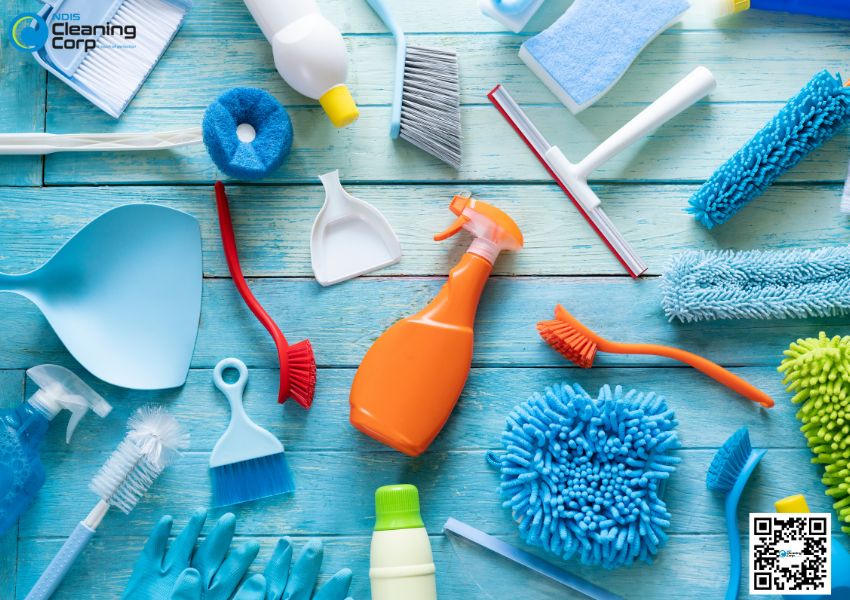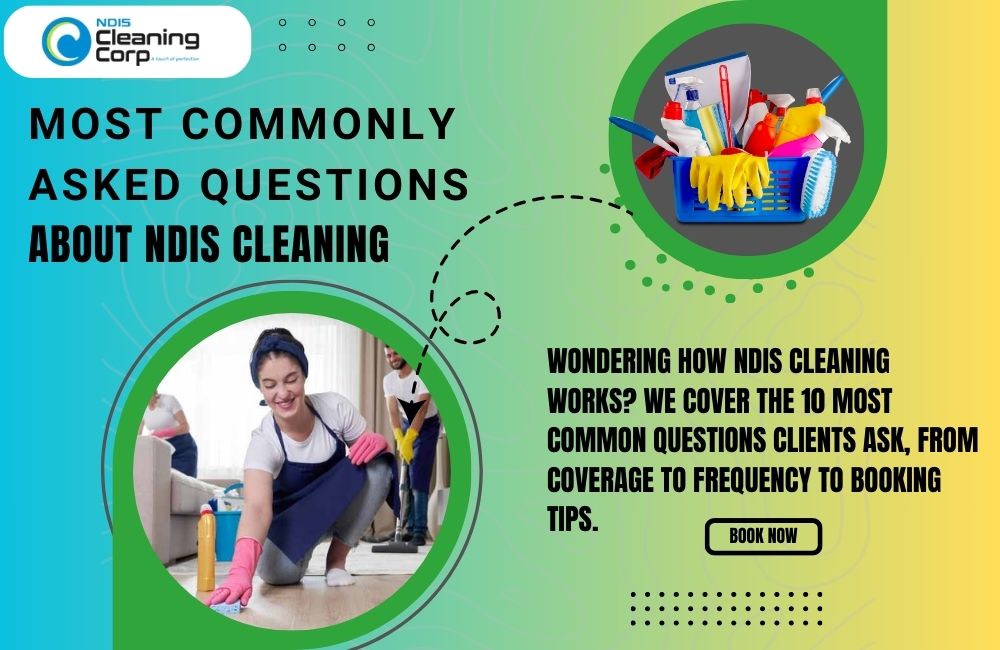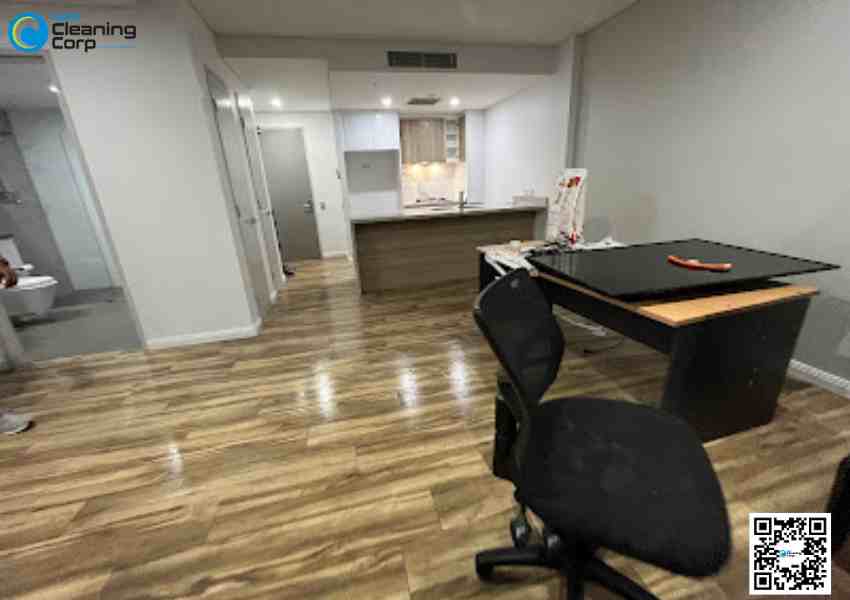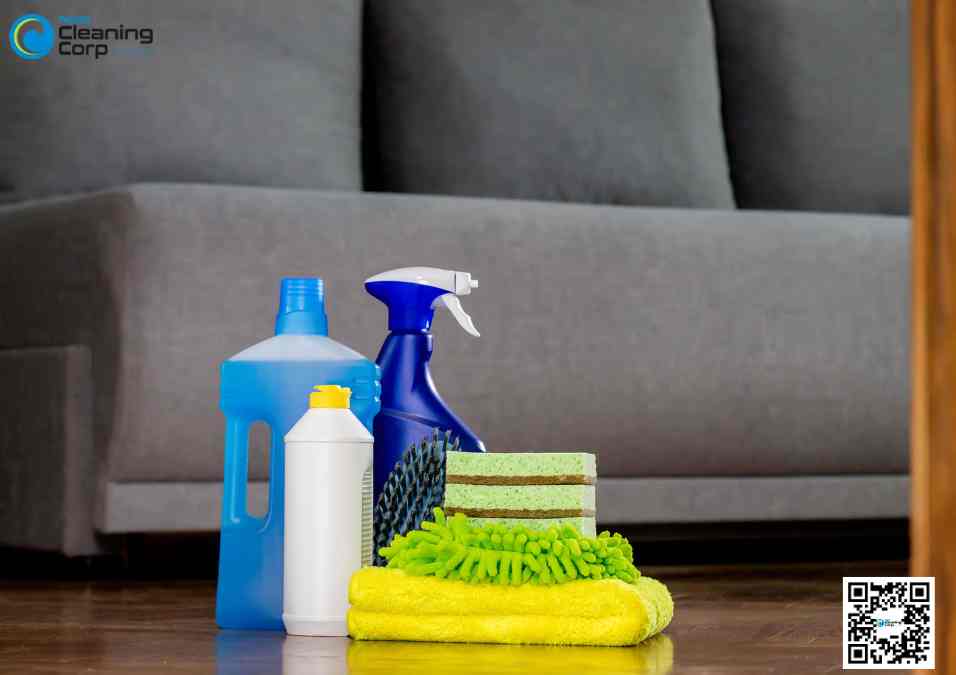Does the NDIS Fund Cleaning Services?
Yes. The NDIS does fund cleaning services — but it...
Maintaining a clean environment is vital for NDIS participants, as it directly impacts their health, safety, and overall quality of life. This guide will delve into essential cleaning practices specifically designed to meet the unique needs of those receiving support under the National Disability Insurance Scheme (NDIS).
A clean environment helps prevent the spread of infections, reduces allergens, and creates a more pleasant and functional living space. For individuals with disabilities who might face challenges in performing routine cleaning tasks, maintaining a hygienic home can be particularly challenging. Regular and effective cleaning ensures that the environment is safe and supportive of their health and well-being.
The NDIS Commission sets out guidelines and standards for service providers, including those offering cleaning services. These guidelines are designed to ensure that the services provided meet the needs of participants and adhere to high cleanliness standards. By understanding these guidelines, both participants and providers can ensure that cleaning practices align with NDIS requirements, contributing to a healthier living environment.

NDIS participants often have specific needs that influence their cleaning requirements. For instance, those with mobility issues may require more accessible cleaning solutions or support with tasks that are otherwise difficult for them to handle independently. Proper cleaning practices help manage these unique challenges by preventing the buildup of dust, dirt, and germs, thus supporting their overall quality of life.
Maintaining cleanliness standards is crucial for health and safety. According to research from the National Disability Insurance Agency (NDIA), environments that meet these standards help in reducing the risk of infections and other health issues. Effective cleaning practices include regular disinfecting of surfaces, proper waste management, and the use of safe cleaning products. This adherence to standards ensures that the living environment is both safe and hygienic, aligning with the NDIS quality requirements.
Real-life example: How NDIS-approved cleaning services can prevent health issues and improve well-being.
Consider the case of Sarah, an NDIS participant with severe asthma. Her NDIS-approved cleaning service ensures that her home is regularly cleaned and sanitized, focusing on reducing allergens like dust and mold. As a result, Sarah experiences fewer asthma attacks and enjoys a better quality of life. This example underscores how specialized cleaning services can address specific health needs and improve overall well-being by maintaining a clean and safe living environment.
Develop a cleaning routine
A structured cleaning routine is essential for NDIS participants as it provides consistency and predictability, which can greatly enhance their sense of stability. According to a study by the Australian Institute of Health and Welfare, having a routine helps individuals with disabilities manage daily tasks more effectively, contributing to their overall well-being. Aligning a cleaning routine with NDIS plans ensures that the support provided is practical and tailored to the participant’s specific needs, making it easier for them to maintain their living environment.
Example: A day-to-day cleaning routine that fits diverse NDIS environments and needs.
For example, a participant with limited mobility might have a cleaning routine that includes:
This routine accommodates varying levels of physical ability and aligns with NDIS plans by ensuring that cleaning tasks are manageable and consistent.
Use accessible cleaning tools.
Selecting the right cleaning tools can significantly impact the ease with which NDIS participants can maintain their homes. Tools designed for accessibility help reduce physical strain and make cleaning tasks more achievable. Research from the University of Sydney indicates that ergonomic tools can improve task performance and reduce fatigue among individuals with disabilities.
Recommendations for ergonomic and easy-to-use cleaning products that cater to the specific needs of NDIS participants.
Example: Tools designed for limited mobility, enhancing the effectiveness of NDIS cleaning services.
For instance, a robotic vacuum can autonomously clean floors, reducing the physical effort required from the participant. This tool is particularly beneficial for individuals with limited mobility or strength, as it aligns with the NDIS-approved cleaning services by offering an efficient and low-maintenance cleaning solution.
Implement safe cleaning practices.
Safety is paramount in cleaning practices, especially for NDIS participants. Adhering to NDIS quality and cleanliness standards ensures that cleaning activities do not pose additional risks to individuals with disabilities. The NDIS Commission mandates these standards to protect participants and maintain a high level of service quality.
Tips for using cleaning products safely, including avoiding common cleaning hazards and adhering to NDIS standards.
Example: How expert tips from seasoned professionals can help maintain cleanliness and safety.
Expert tips from professionals in the cleaning industry highlight the importance of using color-coded cleaning cloths to prevent cross-contamination and the use of low-VOC (volatile organic compounds) cleaners to maintain air quality. These practices not only align with NDIS standards but also enhance the overall safety and efficacy of cleaning routines.
Keep Your Space Organized
Maintaining an organized living space simplifies the cleaning process and supports the goals outlined in NDIS support plans. An organized environment reduces the time and effort required for cleaning, making it more manageable for individuals with disabilities. According to a report by Disability Services Australia, effective organization strategies contribute to improved NDIS practice reviews and participant satisfaction.
Strategies for decluttering and organizing living spaces to facilitate better cleaning practices.
Example: The impact of a well-organized space on cleaning efficiency and maintaining a hygienic environment.
A participant who keeps their living area organized with clearly labeled storage bins and a designated cleaning station finds it easier to maintain cleanliness. This organization not only enhances cleaning efficiency but also helps in meeting cleanliness standards and aligning with NDIS supports.
Consider professional cleaning services.
Engaging professional cleaning services can be essential for NDIS participants, especially when cleaning tasks become physically demanding or when maintaining specific hygiene standards is critical. According to a report by the NDIS Quality and Safeguards Commission, professional cleaning services often provide specialized knowledge, ensuring homes meet cleanliness standards essential for health and safety. These services can cater to the unique challenges NDIS participants face, such as limited mobility, cognitive impairments, or other disabilities.
Professional cleaning support is especially helpful when deep cleaning is required or for participants who have complex care needs. By hiring professionals, NDIS participants can focus on other aspects of their well-being, reducing stress and ensuring a hygienic living environment.
What to look for in a cleaning service provider that understands the unique challenges of NDIS participants.
When choosing a cleaning service provider, it is critical to look for companies that have experience working with NDIS participants. Providers should demonstrate an understanding of the unique physical and mental challenges participants face. Key aspects to consider include:
Example: Success stories from participants who benefited from NDIS-approved cleaning services and expert cleaning practices.
A notable success story involves an NDIS participant with multiple sclerosis who struggled to maintain cleanliness in their home. By engaging a professional NDIS-approved cleaning service, the participant saw a marked improvement in their quality of life. The service included weekly cleaning sessions tailored to their mobility limitations, focusing on high-priority areas such as the kitchen and bathroom. The participant reported reduced stress, improved hygiene, and more energy to focus on other aspects of their NDIS support plan.
Another example comes from a family caring for a child with autism who required specialized cleaning to maintain sensory-friendly environments. The professional cleaners used non-toxic, fragrance-free products and worked during specific hours to avoid disrupting the child’s routine. This service provided relief to the family and ensured the home stayed clean without overstimulation for the child.
Routine cleaning plays an essential role in supporting the health and well-being of NDIS participants. By following these cleaning tips, individuals can create a cleaner, safer, and more organized living space, which is crucial for both physical health and mental well-being.
Encouraging NDIS participants to develop manageable routines, utilize accessible cleaning tools, and adopt safe cleaning practices empowers them to maintain their homes more easily. In situations where cleaning becomes overwhelming, NDIS-approved professional services offer much-needed support. These professionals can cater to the unique needs of participants, ensuring that cleanliness standards are met consistently.
By applying these tips and seeking the right resources, participants can enhance their living environments while adhering to the NDIS quality and cleanliness standards. To maintain a safe, healthy, and hygienic space, consider exploring professional cleaning services that understand and accommodate the specific needs of NDIS participants.
More Post

Yes. The NDIS does fund cleaning services — but it...

Alright, let’s get straight into it. These are the questions...

NDIS cleaning services are specifically designed to cater to the...

The role of professional cleaning in maintaining a safe and...

Studies consistently show that living in a clutter-free, organized space...